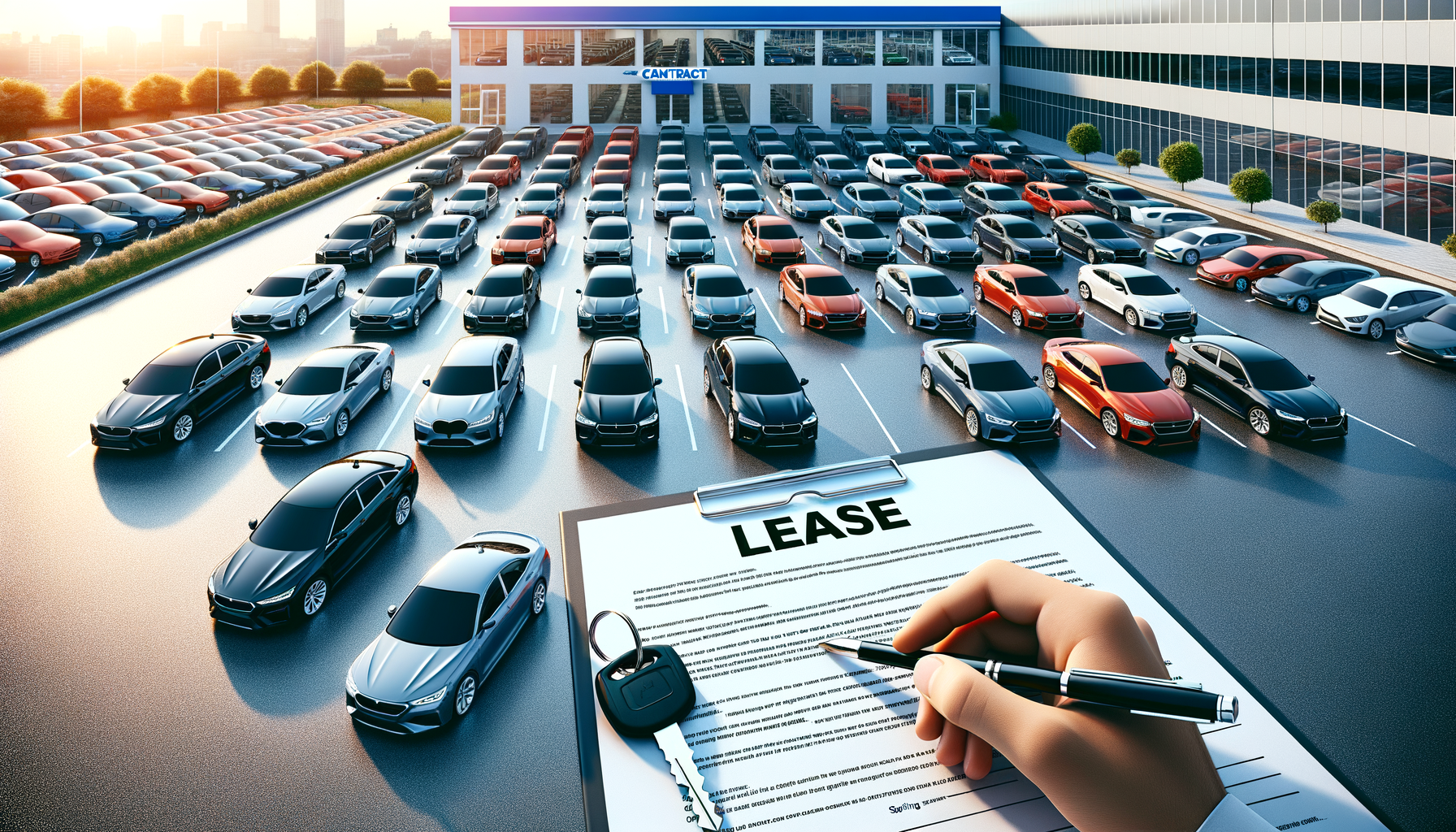Understanding Car Leasing: A Modern Approach
Car leasing has emerged as a popular alternative to purchasing vehicles outright. In a world where flexibility and financial prudence are highly valued, leasing provides a unique way to enjoy the benefits of a new car without the long-term commitment of ownership. When you lease a car, you essentially rent it for a specified period, typically two to four years. This method allows drivers to enjoy the latest models with lower monthly payments compared to traditional car loans.
Leasing is particularly appealing for those who enjoy driving new cars frequently, as it allows them to switch to newer models every few years. This can be especially advantageous given the rapid advancements in automotive technology and safety features. Furthermore, leasing often includes maintenance packages, reducing the hassle and cost of upkeep.
However, it’s important to understand the terms of a lease agreement. These contracts often come with mileage limits and fees for excessive wear and tear. Drivers who exceed these limits may face additional charges at the end of the lease term. Despite these considerations, leasing remains a viable option for many, offering a blend of convenience and cost-effectiveness.
The Financial Benefits of Leasing a Car
One of the primary reasons drivers opt for leasing is the financial advantage it provides. Monthly lease payments are generally lower than loan payments for a purchased vehicle. This is because you are only paying for the vehicle’s depreciation over the lease term, rather than the entire purchase price.
Leasing also often requires a smaller down payment, making it more accessible for those who may not have a large amount of cash on hand. Additionally, some leases include maintenance and repair services, further reducing overall costs. This can be particularly beneficial for those who prefer predictable monthly expenses.
For businesses, leasing can offer tax advantages. Lease payments can often be deducted as a business expense, potentially reducing taxable income. This makes leasing a strategic choice for business owners looking to manage their financial statements effectively.
- Lower monthly payments
- Smaller down payment required
- Potential tax benefits for businesses
- Included maintenance packages
Flexibility and Lifestyle Considerations
Leasing a vehicle aligns well with modern lifestyle preferences, where flexibility and convenience are prioritized. For individuals who prefer to drive the latest models, leasing is an excellent option. It allows drivers to experience new technologies and features as they become available without the commitment of long-term ownership.
Another lifestyle benefit of leasing is the ability to avoid the depreciation concerns associated with owning a vehicle. Cars typically lose a significant portion of their value within the first few years, but with a lease, this depreciation is factored into the monthly payments. At the end of the lease term, you simply return the car and can choose a new model, avoiding the hassle of selling or trading in a depreciated vehicle.
For those who relocate frequently or have changing transportation needs, leasing provides the flexibility to adapt without the burden of selling a car. This adaptability is increasingly important in a world where personal and professional circumstances can change rapidly.
Comparing Leasing and Buying: Making the Right Choice
Deciding between leasing and buying a car depends on several factors, including financial situation, lifestyle, and personal preferences. Buying a car offers the advantage of ownership and the freedom to drive as much as desired without mileage restrictions. It can also be more cost-effective in the long run for those who plan to keep the vehicle for many years.
However, leasing offers lower upfront costs and the excitement of driving a new car more frequently. For those who value having the latest technology and safety features, leasing is a compelling option. It also eliminates the concern of selling a used car, which can be a daunting task for many.
When making a decision, consider your driving habits, financial goals, and how long you typically keep a vehicle. Both leasing and buying have their merits, and the right choice will vary depending on individual circumstances.
- Ownership vs. flexibility
- Long-term cost considerations
- Mileage restrictions and usage
- Technological advancements and preferences
Conclusion: Is Leasing Right for You?
Leasing a car is an increasingly popular choice for drivers who value flexibility, lower monthly payments, and the ability to drive new models frequently. It provides a modern solution for those who prefer not to commit to long-term ownership or deal with the depreciation of a purchased vehicle.
Before deciding to lease, it’s important to assess your financial situation, lifestyle preferences, and driving habits. Consider the terms of the lease agreement, including mileage limits and potential fees, to ensure it aligns with your needs.
Ultimately, whether leasing is the right choice depends on individual circumstances. For many, it offers a practical and financially savvy way to enjoy the benefits of a new car without the long-term commitment of ownership.




Leave a Reply